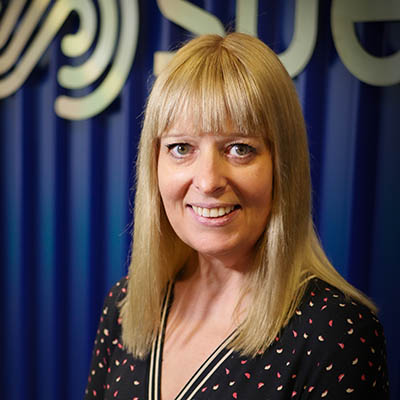How to balance demand and supply with social value and greater sustainability

Like every successful business, we strive to be customer-centric in everything we do. However, we realised early on that talking to customers, responding to their needs, and even anticipating their requirements wouldn’t be enough – our suppliers needed to be part of the conversation too.
As a company committed to balancing the triple bottom line – people, planet, profit – sustainability and social value are embedded in our business model. What defines us to our customers is how we combine this commitment with cost-effective, high-quality services. To achieve this, our supplier relationships must align with our customers’ sustainability goals.
Buy-in is a win-win
Simply put, we buy from suppliers who buy into our principles. In practice, that isn’t just a matter of finding the right match. Having pioneered the circular economy and social value in our sector, we have a responsibility to educate, encourage and support companies in the supply chain as they make their own transitions.
Our procurement team leads this effort. But before asking others to fall in line, it’s essential that your own house is in order. Transparency and sustainability credentials are key.
ISO 20400 is the international standard for sustainability in procurement management. Our company was re-assessed for compliance last year, having first gained accreditation back in 2017. Our performance is also independently measured against other benchmarks. EcoVadis, which monitors the sustainability of global supply chains, has awarded gold medal status to the SUEZ Group’s approach to the environment, human rights, ethics and sustainable procurement.
As a strong advocate for safeguards against Modern Day Slavery, the UK procurement team has improved our assessments. As well as adopting AI-powered tools to streamline the more routine aspects of procurement, we use the services of data specialists Sedex to analyse the environmental and social impacts of our supply chain. A Group assessment of supply chain risks confirmed that our UK operations were not reliant on any high-risk suppliers. In addition, we have our own supplier relationship management process to monitor the ESG (environment, social, and governance) and financial performance of our supply partners.
Measuring social value
We’ve been measuring our own social value impact for several years now. In 2023, our impact reached a total of £2.7 billion. Calculations now under way for 2024 should show us moving nearer our £3 billion per year target. This exercise has highlighted the significant contribution made through our supply chain, not least to local economies and communities.
More than half of our total annual spend is with SMEs (57%). We have improved our payment terms for these small and medium-sized enterprises to bolster their financial health and resilience. Approaching £1 million goes to voluntary, community and social enterprises. These organisations work with us in various ways – for example, refurbishing furniture, electricals, other discarded household items, and bicycles for re-use and re-sale, while training and employing those who are currently out of work, ex-offenders and other disadvantaged people.
Supporting our suppliers
Like other major companies, we hold supplier days and issue quarterly newsletters to update existing and prospective suppliers on our expectations and opportunities.
We also encourage suppliers, especially smaller entities, to engage with the Supply Chain Sustainability School. SUEZ UK is a gold partner of this organisation, which was established in 2012 to share free resources on sustainability topics. Last year, for example, we set up three webinars on modern slavery, tackling carbon emissions, and understanding social value.
Our procurement team works closely with colleagues whose job it is to liaise with the community or manage our sustainability performance. Together, they support local SMEs and social enterprises. At supplier events, we build bridges between these organisations and our customers.
The common objective of SUEZ UK and our customers is to select suppliers who contribute to our shared aims. Our tendering process not only takes account of cost, but also the wider value suppliers bring in environmental practices and community benefits.
Recognising and sharing success
It is important to recognise the initiatives of supply chain partners. They are responsible for innovations such as using hydrogen-powered plant in civil works, electrifying vehicle fleets, minimising vehicle movements and site visits through telematics, and their own social inclusion programmes for employing, for example, prison leavers and others from marginalised groups.
Our annual supplier awards celebrate such achievements and spur others to raise their own sustainability game.
In the most recent awards round, the procurement team nominated more than 30 suppliers across our three categories – people, planet and profit. Winners included:
- Cooler Aid Ltd, a water cooler company that contributes a portion of each rental charge to fund children’s education in Malawi;
- Resource Futures in Somerset for empowering community groups working to reduce and compost waste, and share surplus food; and
- Air Products for streamlining how we manage gas cylinders through an innovative tagging system.
The overall award for supplier of the year went to Sunbelt Rentals for its eco cabins and solar-powered lighting, which are making a significant contribution to how we and our customers protect the environment by reducing carbon emissions.
Sustainability in procurement, like customer centricity, is fundamentally about partnerships. And stronger partnerships – with customers and suppliers – have a systemic impact, amplifying social value and advancing sustainability and the circular economy. These are all matters that also mean a lot to our employees.
